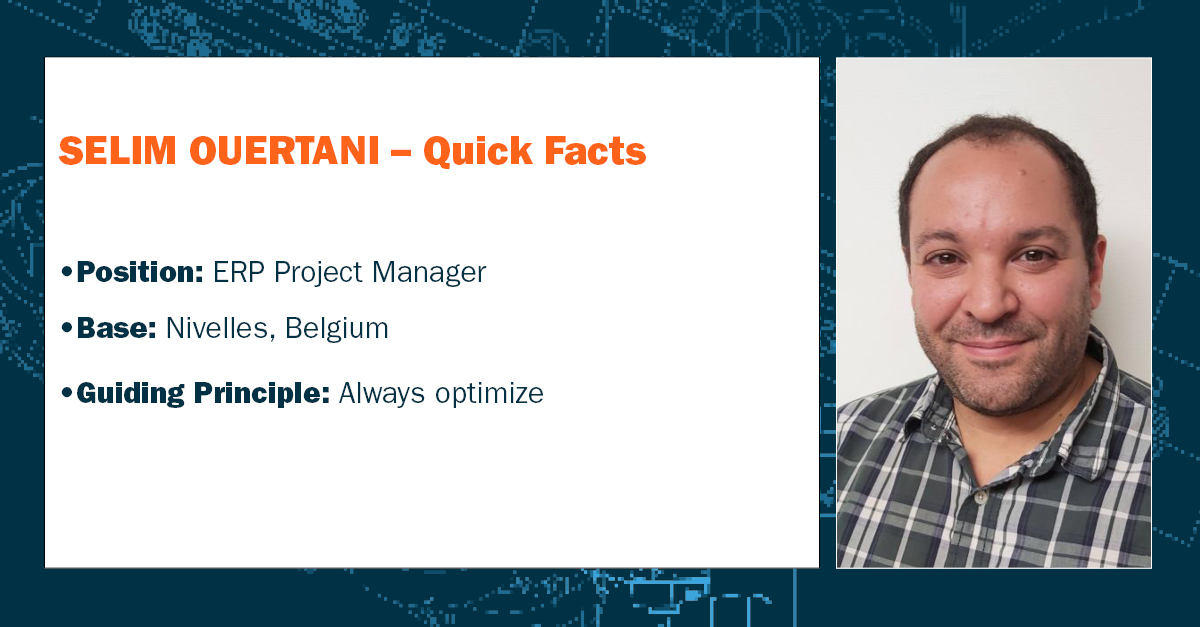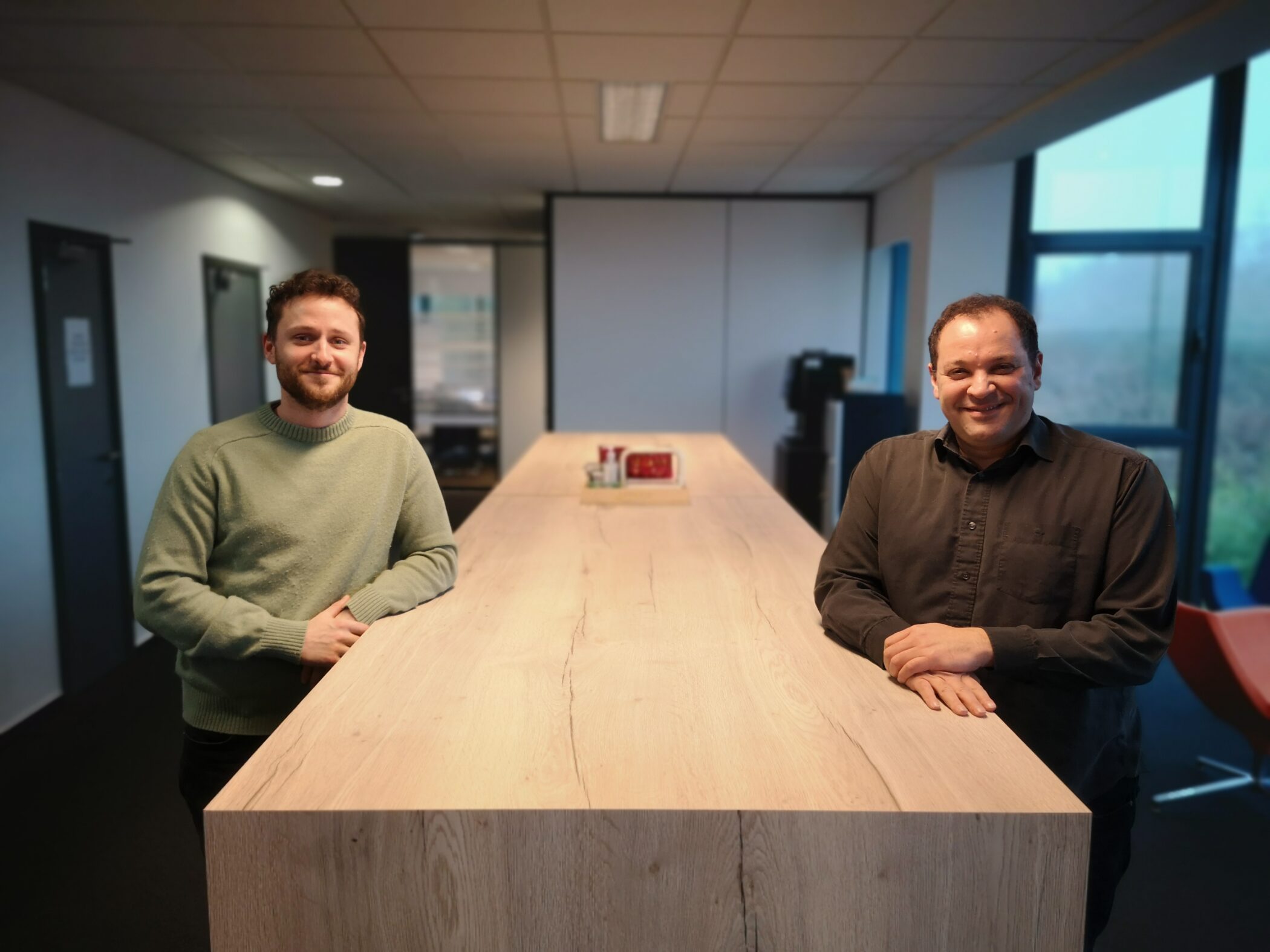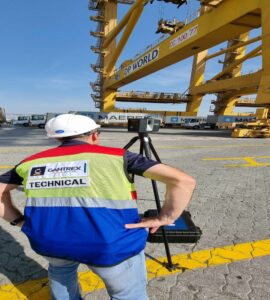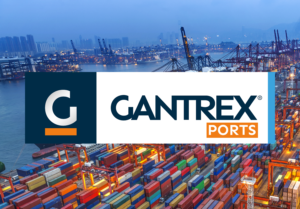THE GANTREX "INTRODUCING" SERIES #19
Project timing must be realistic. It’s never a good idea to rush a project implementation but neither is it wise to move too slowly and lose the momentum.
Selim Ouertani is currently leading the roll out and implementation of our new ERP; a strategic project set to deliver wide ranging improvements and efficiency for our business, our customers and a sustainable future. In this latest Introducing Series, let’s hear how Selim believes automated processes must work with human processes and how this exciting project plays a key role in customer experience.

Selim, can you explain what your role as ERP Project Manager involves?
There are 2 aspects to my role within the company, one responsible for the roll out of our new global ERP system and the second as Business Analyst. My activity on the roll out of the ERP is currently my main focus as this is such a significant investment for Gantrex and one which will have far reaching impacts and benefits for us operationally. But it’s also one which will deliver real benefits for our customers.
As ERP Project Manager my day to day activities include planning and organizing the roll out of the ERP across Gantrex sites across the world, managing the budget and associated license costs, looking to optimize cost wherever possible whilst providing ongoing support for bug fixing and change requests from project colleagues and system users.
In my role as Business Analyst I provide more functional support to our users across a range of tasks including CRM, quotations, sales, procurement, project management, finance and accounting.
As Project Manager for this roll out program what skills do you think you have that will ensure it is successful?
Whilst I have been with Gantrex for just 3 years, I have spent the last 15 years working with systems of this kind, so I have the pedigree, experience and expertise to deliver the project. In addition to that however, there are other key principles that I follow to ensure the project is a success.
Firstly, I appreciate that automated systems and processes must work with human processes and behaviours. So, I set the scene early on to build understanding, awareness and buy-in for the project from all internal stakeholders. Be that in meetings, documentation, or videos I make sure that the improvements and ‘why’ of the project are well understood. I work hard to bring colleagues with me to see the vision and to understand the role they play in the overall success of the project.
I also take the time to listen and follow up on local requirements, while at the same time making sure that each local team understands and respects that there are objectives in place, and so I push the Adopt as opposed to the Adapt messaging, being mindful of limiting custom developments for teams.
We use the lessons we have learned from previous roll outs to overcome hurdles and forecast problems before they happen. There’s no need to reinvent the wheel for every new project so we re-use existing formats or plans from previous projects. We work together to plan activities on a realistic timeline. It’s never a good idea to rush an implementation but not a good idea either to lose the momentum and take too much time.
Working on projects of a size and scale such as this one can bring challenges to the team, so it’s important to keep the project team, internal and external, motivated. We have regular reviews of progress with the Project Sponsor and the local Project Management team. And we work with our partners to overcome problems and bring in their expertise to head off any risks.

You mention the challenges of working on a project of this size. Can you explain why the roll out of the ERP is of such strategic significance for the business?
It all comes down to efficiency, continuous improvement, and customer satisfaction. By having people working in a standardized way, consistently using proven best practice, taking full advantage of technology and automation to maintain quality and standards, we see that we can create a customer experience that builds loyalty and a customer closeness that others are simply not able to provide. But more than that, the information must be correct. The new system will provide a common means of reporting which means we can also reduce the incidence of manual input errors; it will allow us to identify areas of weakness in the business and drive forward with action plans to improve. We must provide quality data for it to be of any benefit, and this is where the ERP comes in.
So what kinds of quality data can customers expect to see?
The new system will play a major role in the MyGantrex online customer portal, which in itself is set to deliver a range of great benefits for our customers. The immediacy of information relating to order and project status will upgrade their customer experience and accessibility to real time data via the ERP system will contribute to this. In addition, we expect to see improvements in shipment accuracy, improved information and documentation and improvements in the quality and timeliness of information that customers require.
With the MyGantrex customer portal already launched in some territories and the excellent feedback received from early adopters, we can see that this more centralized approach to data management, process and controls is delivering positive impacts all round.
It’s important to say thought that with any implementation of this size, there are likely to be some initial bumps in the road. But we are working closely with our sales teams and customers to make everyone aware of any likely early-stage impacts.
Gantrex is a global operation with customers across the world. How does a system like this specifically support our worldwide operation?
In very simple terms it gives us one system, one set of processes and one set of standards for quality and performance that we look to achieve regardless of where in the world our activity might be. It will also provide an easy stock overview for all our operations which will allow us to reduce stock levels, minimize waste and improve availability of our products. Thinking about the commercials, it will also pool all financial transactions through one centralized system enabling faster and more accurate reporting, consolidation and decision-making powers.

What is it that you find most rewarding about your job and rolling out a project such as this?
One of the key things that I find personally very rewarding is seeing the measurable and positive impacts that the new process is having on our business, and more specifically the improvements in workload and efficiency that benefit our colleagues and our customers worldwide. With this project in particular, I have received some great feedback from colleagues across the business who are already seeing the benefits and improvements that the ERP roll out is starting to bring.
A colleague in Canada recently fed back a long list of improvements she could already see compared to the legacy system including better collaboration between internal teams, ease of access to order tracking data and the fact that she no longer needs to print off hard copies of order slips and packing documentation as just two examples. A colleague in America has also recently commented on their experience of the new system sharing their delight at having all the data they need to perform her customer support role, in one easy to access resource, saving valuable time for the customer and reducing any data errors from switching between multiple systems.
This is clearly a significant investment for Gantrex. How do you think this specific activity ties in with the overall values of the business?
Gantrex is driven by a genuine desire to improve the solutions available to industry and help solve some of the most complex challenges that our customers across all sectors continue to face. This commitment to continuous improvement starts from within the organisation and the roll out of the ERP will support improvements across the board; from more efficient stock control to improvements in reporting and accuracy. The activity is part of our digital transformation program, and also plays to best use of automation and globalization strategies.
And finally what piece of advice would you give to someone looking to enter this industry and build a career managing large scale projects such as this ?
First and foremost, get to know the business. While I may oversee the rolling out of software and automation technologies, humans are still at the centre of everything I do. So be interested in people and understand their needs and understand that project success relies on a degree of self-awareness so know your limits and build a good internal and external team around you.






